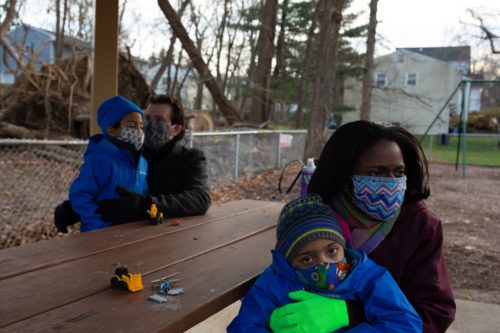How Black Parents Survived 2020
Share
Explore Our Galleries
Breaking News!
Today's news and culture by Black and other reporters in the Black and mainstream media.
Ways to Support ABHM?
By Dani McClain, New York Times
‘What kind of world did we bring them into?’
The pandemic has tested parents’ limits, and for Black families 2020 has been especially crushing. Black people are dying from Covid-19 at two times the rate of their white peers. The recession has widened the gap between Black and white unemployment, with Black workers disproportionately facing permanent layoffs. And Black and Hispanic students are at greater risk of falling behind during this year’s academic upheaval.

Protests against police violence and conversations about racism in the workplace were personal for Black families. These reckonings were a sign that more Americans seemed to be acknowledging the discriminations and dangers Black people have faced for generations….
As this difficult year draws to a close, six families share how they have coped.
Read the full article here.
Learn more about how black fathers talk about police brutality and education in the Jim Crow South.
More Breaking News here









Comments Are Welcome
Note: We moderate submissions in order to create a space for meaningful dialogue, a space where museum visitors – adults and youth –– can exchange informed, thoughtful, and relevant comments that add value to our exhibits.
Racial slurs, personal attacks, obscenity, profanity, and SHOUTING do not meet the above standard. Such comments are posted in the exhibit Hateful Speech. Commercial promotions, impersonations, and incoherent comments likewise fail to meet our goals, so will not be posted. Submissions longer than 120 words will be shortened.
See our full Comments Policy here.